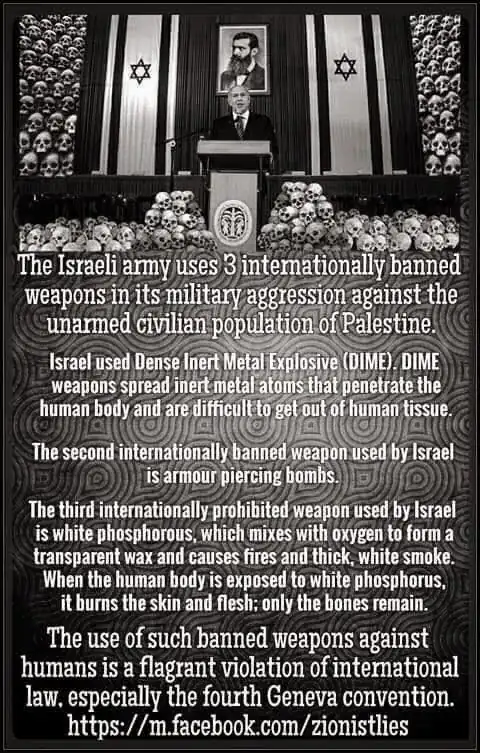This graphics is a mess, but is partially correct.
Wikipedia says about DIME
has a relatively small but effective blast radius
It is intended to limit the distance at which the explosion causes damage
And brings Palestinian claims about its usage, but I couldn't find any other hard proofs besides those few claims.
The Israeli Army related forum Fresh mentions the theoretical ability to launch DIME using GBU-39 smart bombs.
globalsecurity.org brings more technical details.
There seems to be concerns about the materials being carcinogenic and about hard to treat wounds, but they are not banned
It's no more illegal than normal blast-and-shrapnel weapons, but it is a mystery.
The results of using this bomb are horrible, but this is a weapon meant to kill but on the other side tries to minimize collateral damage.
I suppose that by "armor piercing bombs" they meant depleted uranium armor piercing shells, those are using the high mass of uranium as a better way to penetrate armored vehicles. There is no explosion (and certainly no nuclear explosion) but the material itself might (is?) have health hazards but mainly to the people operating it and less to people being hit, again this is a shell designed to kill and any health issues are related to third parties.
There are Palestinian claims about depleted uranium shell usage in Gaza. The UN didn't find evidence for usage even in Lebanon where it makes more sense to use armor piercing shells, while in Gaza the fighting is against "soft targets".
Depleted Uranium weapons are not banned although there are intentions to have treaties against their usage.
White phosphorous can have multiple uses, it can be used directly against people, as an incendiary weapon, as a smoke bomb but also as long lasting illumination or marking. Israel used the latter two during operation Cast-Lead in 2009. Translation from the Hebrew article
Cast Lead | The IDF investigates why a reserve force fired 20 phosphorus bombs at a residential neighborhood in the Gaza Strip
But due to criticism the IDF stopped using it. Translation from the Hebrew article
During Operation Cast Lead, international criticism of Israel intensified due to its use of phosphorus bombs in populated areas. Contact of a person with white phosphorus causes severe burns.
The IDF did not deny that they used bombs containing phosphorus in cast lead, but said that they did so in accordance with the law and not in populated areas, but in open areas. However, in light of the criticism, during the operation, senior military officials ordered to stop the use of these bombs.
The status of the weapon is complex, it's existence is not banned but it shouldn't be used against people.
